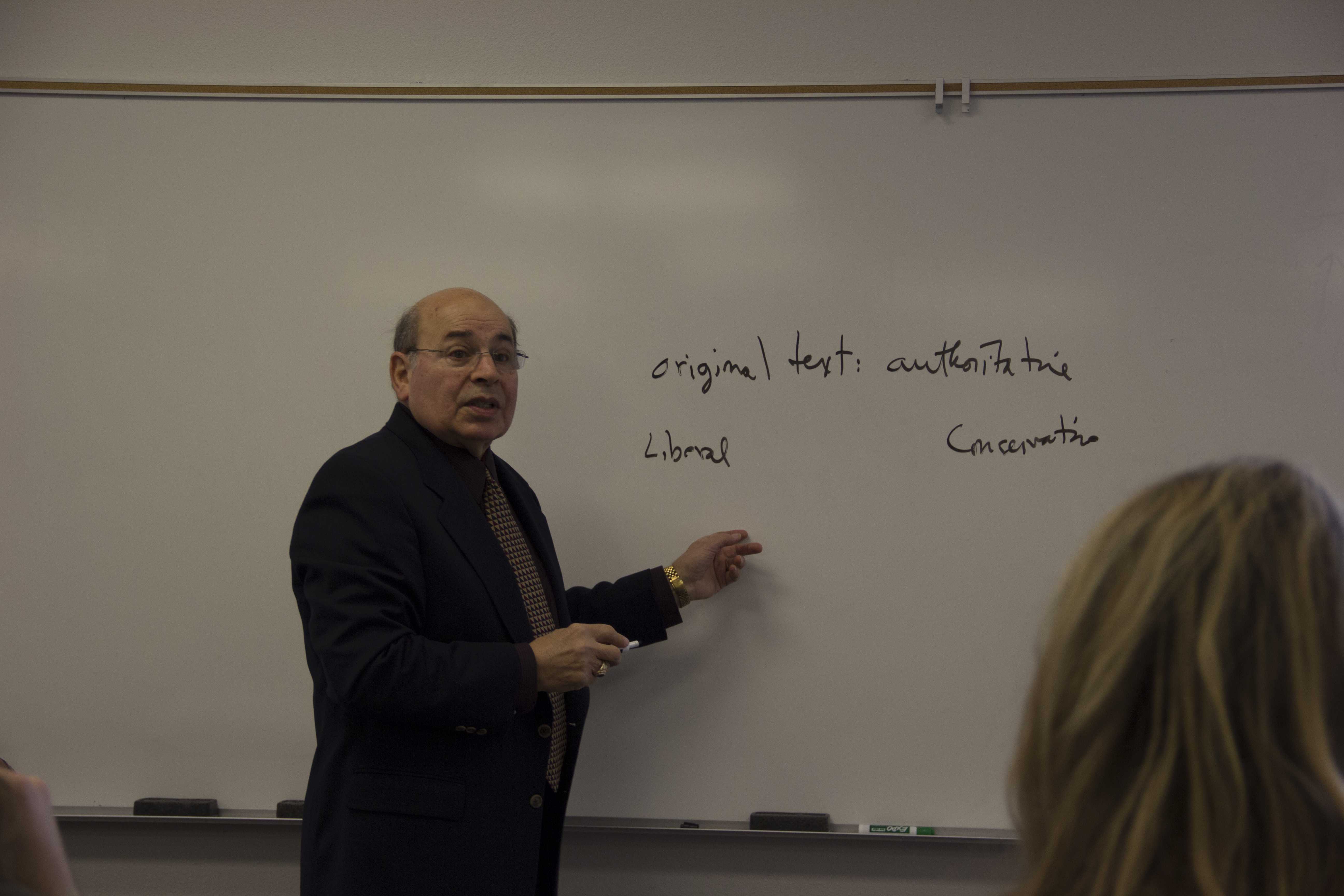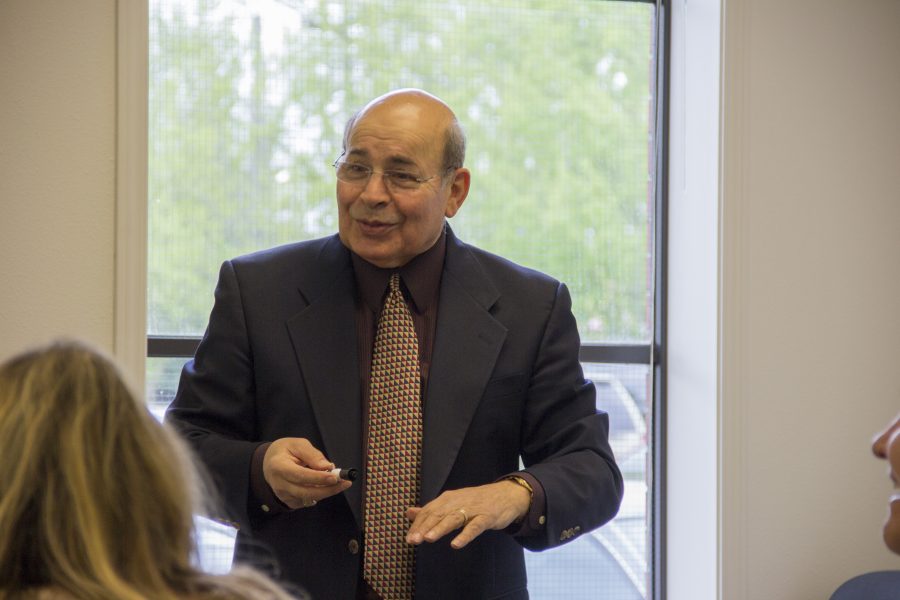Featured image: Dr. Frank Spina teaches Old Testament theology. Max Briggs | The Falcon
The course of Dr. Frank Spina’s life was unexpectedly, drastically impacted by a class he took in the second semester of his freshman year of college. Now, many years later, he expressed contentment with where this one small, yet significant, choice has lead him.
He was attending Greenville College in Illinois and trying to find a major that fit, as many first-years do. He took a course that he remembers being called Basic Christianity, taught by a Dr. Stanley Walters.
“[Walters] was at that time a freshly minted Ph.D from Yale and I just was smitten,” Spina remembers. “Smitten by him personally, he was articulate, he was elegant, he exuded intelligence … within a week, I thought ‘I want to do what that person is doing.’”
Spina had stumbled upon his future career by total accident. He was sure that he wanted to do exactly what Walters was doing, and he started to pursue university or seminary level teaching immediately. He was not entirely confident that he could accomplish his lofty goal, but he persisted.
“At the time, I did not think I was capable of it, that took some time to realize I could do higher education,” Spina said.
Spina has spent every year of his 46 year teaching career in Seattle Pacific University’s theology department; though he remembers when it was still called the school of religion. In fact, he was teaching at SPU before his dissertation was even finished.
SPU was in search of professors of theology at the time, so the president called his friend Stanley Walters several states away to ask if he knew of any students who might be interested. Walters gave Spina’s name.
At the time, academic posts were reportedly scarce, so when young Spina was contacted by former SPU President David McKenna in 1973 for an interview during the second year of his dissertation at the University of Michigan, he was understandably excited.
“McKenna asked me if I could meet him the next day at O’Hare airport, … so, I flew the next day. We had wonderful conversation,” Spina remembers.
Despite what we now know about the ending of this story, Spina sat in SPU’s Alexander Hall, in a conference room just down the stairs from his own office, while he told the story, he recalls his uncertainty through the interviewing process.
“There were six other candidates, I didn’t think I had a chance for the job. But, as they say, the rest is history,” Spina said with a smile.

In 1973, before he accepted the position, Spina was pastoring a small church while attending college and could easily have stayed there. He had housing, a decent salary and was comfortable where he was. However, he knew the job at SPU was an opportunity that he should not turn down.
He, of course, accepted it, and is now looking back on a 46 year career at SPU as he nears his retirement in June.
“The thing that makes me most smile is historically my colleagues,” Spina said, thinking about his time at SPU. “Not only generally, but more specifically in the School of Theology. … On my dying bed, I will think most fondly of my colleagues.”
Alongside the relationships he has had with his colleagues in Alexander, he also looks back fondly on the adventures he has had over the years with those people.
“Back in the day I was very active politically with the university, you know,” he said. “I was a part of a faculty who liked to keep the administration on its toes, so to speak, so that was a lot of fun,” Spina noted with a laugh.
After so many years of experience, Spina has plenty of wisdom to impart about education.
“In terms of teaching, you have to be who you are,” Spina said. “There is an intuition, a sense of what it means to be a professor.”
He says that he has learned to pave his own way and stay true to himself, not imitate others before him. He advises teachers to be themselves and trust that intuition to guide them.
“I early on learned that I could not be that person that inspired me to become a professor. I could not be my favorite seminary professors. I could not imitate my Michigan professors. I had to be Frank Spina, whatever that meant,” he said.
Looking forward, Spina has considerable plans for the time that will be suddenly freed by his retirement. He plans to work on a book, which is already well underway and has a publisher, as well as continue the work he has always loved doing as an Episcopal priest.
He plans to spend much of his time with his wife, with whom he will move to Boise in June. Later, they plan to travel internationally.
“My wife and I are going to acquaint ourselves, we’ll have an adventure” he said.
He looks back fondly on his many, many former and current students, whom he expressed gratitude and admiration for.
“My students over the years have made me pinch myself always that I’m being paid to do what I would love to do, and I would do it without the money if I could,” said Spina.















































































